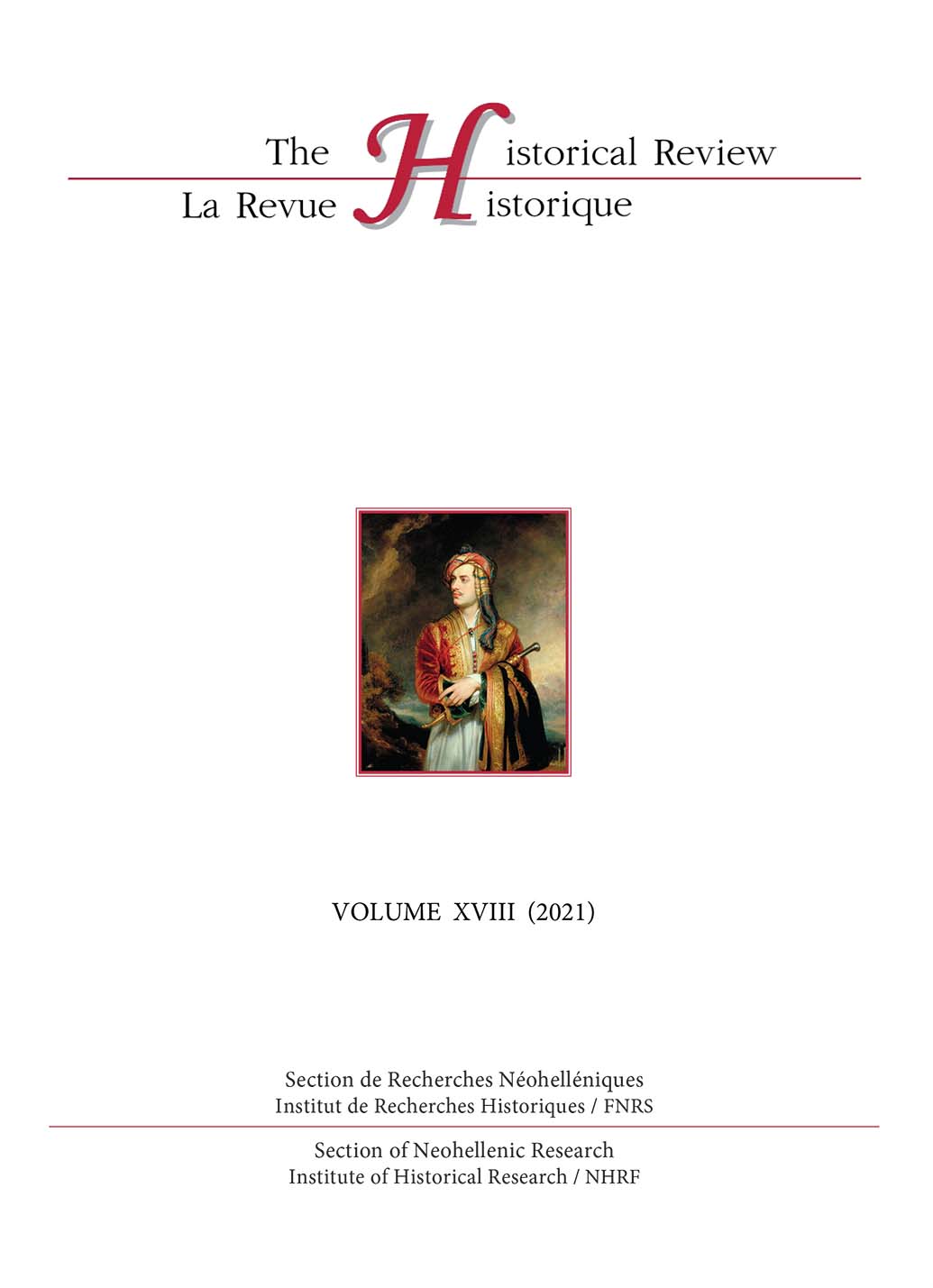The Greek Community’s Contribution to Batum’s Political, Social and Economic Life, 1860s–1900s
Abstract
Many aspects relating to the Greek diaspora in the Russian Empire from the
eighteenth to the first quarter of the twentieth centuries have been researched in detail.
Nevertheless, some pieces in this mosaic are less well known. Batum is one of them.
Having first settled there in the 1850s, the Greeks of Batum are one of the largest and
oldest minorities in the city. As such, they witnessed its transformation from Ottoman
to Russian rule and from a small littoral village to a big, charming and cosmopolitan
port-city. Batum’s Greeks were actively involved in all spheres of city life, especially in
entrepreneurship and politics. This article focuses on the oil and oil-related business
activities in which the Greeks were especially successful. Some Greeks were prominent
in the town’s life, serving as councillors. The article reveals that the Greeks of Batum had
a high educational and cultural level and made a significant contribution to the city’s
development. At the same time, they kept their Greek identity, supporting both the Greek
church and schools in Batum.
Article Details
- How to Cite
-
Tchkoidze, E. (2022). The Greek Community’s Contribution to Batum’s Political, Social and Economic Life, 1860s–1900s. The Historical Review/La Revue Historique, 18(1), 217–235. Retrieved from https://ejournals.epublishing.ekt.gr/index.php/historicalReview/article/view/31376
- Section
- Articles

This work is licensed under a Creative Commons Attribution-NonCommercial-ShareAlike 4.0 International License.
The copyright for articles in this journal is retained by the author(s), with first publication rights granted to the journal. By virtue of their appearance in this open access journal, articles are free to use with proper attribution in educational and other non-commercial sectors. The Historical Review/La Revue Historique retains the right to publish papers that appear in the journal in collective volumes published by the Institute for Neohellenic Research/National Hellenic Research Foundation.
Sample acknowledgement: Reprinted with permission from the author. Original publication in the The Historical Review/La Revue Historique www.historicalreview.org
This work is licensed under a Creative Commons Attribution-NonCommercial-ShareAlike 4.0 Greece License. To view a copy of this license, visit http://creativecommons.org/licenses/by-nc-sa/4.0/ or send a letter to Creative Commons, 543 Howard Street, 5th Floor, San Francisco, California, 94105, USA



